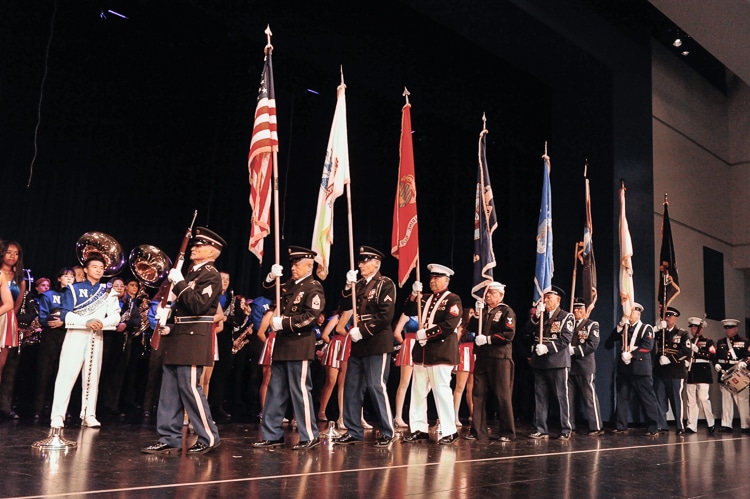NORCO – The 81st anniversary of the attack on Pearl Harbor was commemorated Wednesday during a ceremony in Norco, featuring patriotic music and recollections from that “Day of Infamy,” which propelled the United States from neutral to Allied leader in World War II.
The Lake Norconian Club Foundation hosted the commemoration, officially themed, “Never Forget: A Day to Remember Those Who Gave All.”
The event honored all service branches, not only the U.S. Navy, which had a large presence, with representatives from the nearby Corona Naval Surface Warfare Center, part of U.S. Naval Sea Systems Command, on hand.
Speakers paid homage to those who made the ultimate sacrifice on Dec. 7, 1941.
The ceremony was relocated away from the Navy base this year — in what organizers described as a one-time change of venue — due to renovations on the grounds of the installation.
More than 2,400 U.S. soldiers, sailors and Marines died defending the Hawaiian naval base from Japanese attackers in a two-hour air assault. The following day, Dec. 8, 1941, the United States declared war on Japan, which led to the Axis powers uniformly declaring war on the U.S., marking the nation’s official entry into World War II.
Just before 8 a.m. on Sunday, Dec. 7, 1941, Japanese torpedo bombers, dive bombers and fighters — altogether numbering more than 350 aircraft — arrived in two waves, permanently sinking two battleships, the USS Arizona and Utah at Pearl Harbor. The Arizona’s losses totaled 1,177 — the highest of any ship in the harbor.
Most of the military vessels that went down in the surprise attack were resurrected and deployed to fight again.
Bellows, Hickam and Wheeler airfields were also bombed, as well as the installations at Ewa, Ford Island and Kaneohe Bay, inflicting major damage.
Imperial Japan carried out the attack in an attempt to cripple the U.S. Pacific Fleet as it sought domination over much of Asia.
The following day, on December 8, 1941, President Franklin Delano Roosevelt addressed Congress with an address that began, “Yesterday, December 7, 1941, a date which will live in infamy…” giving birth to the term, “Day of Infamy.”
On that day, Congress sent a declaration of war against Japan to President Roosevelt. When Germany and Italy declared war on the United States three days later, December 11, 1941, the U.S. quickly reciprocated and the country was fully immersed in WWII, in both the Pacific and European theaters.



Thank you for your sharing. I am worried that I lack creative ideas. It is your article that makes me full of hope. Thank you. But, I have a question, can you help me?
I don’t think the title of your article matches the content lol. Just kidding, mainly because I had some doubts after reading the article.
I don’t think the title of your article matches the content lol. Just kidding, mainly because I had some doubts after reading the article.
Can you be more specific about the content of your article? After reading it, I still have some doubts. Hope you can help me. https://www.binance.info/ar-BH/register?ref=S5H7X3LP
**mitolyn**
Mitolyn is a carefully developed, plant-based formula created to help support metabolic efficiency and encourage healthy, lasting weight management.